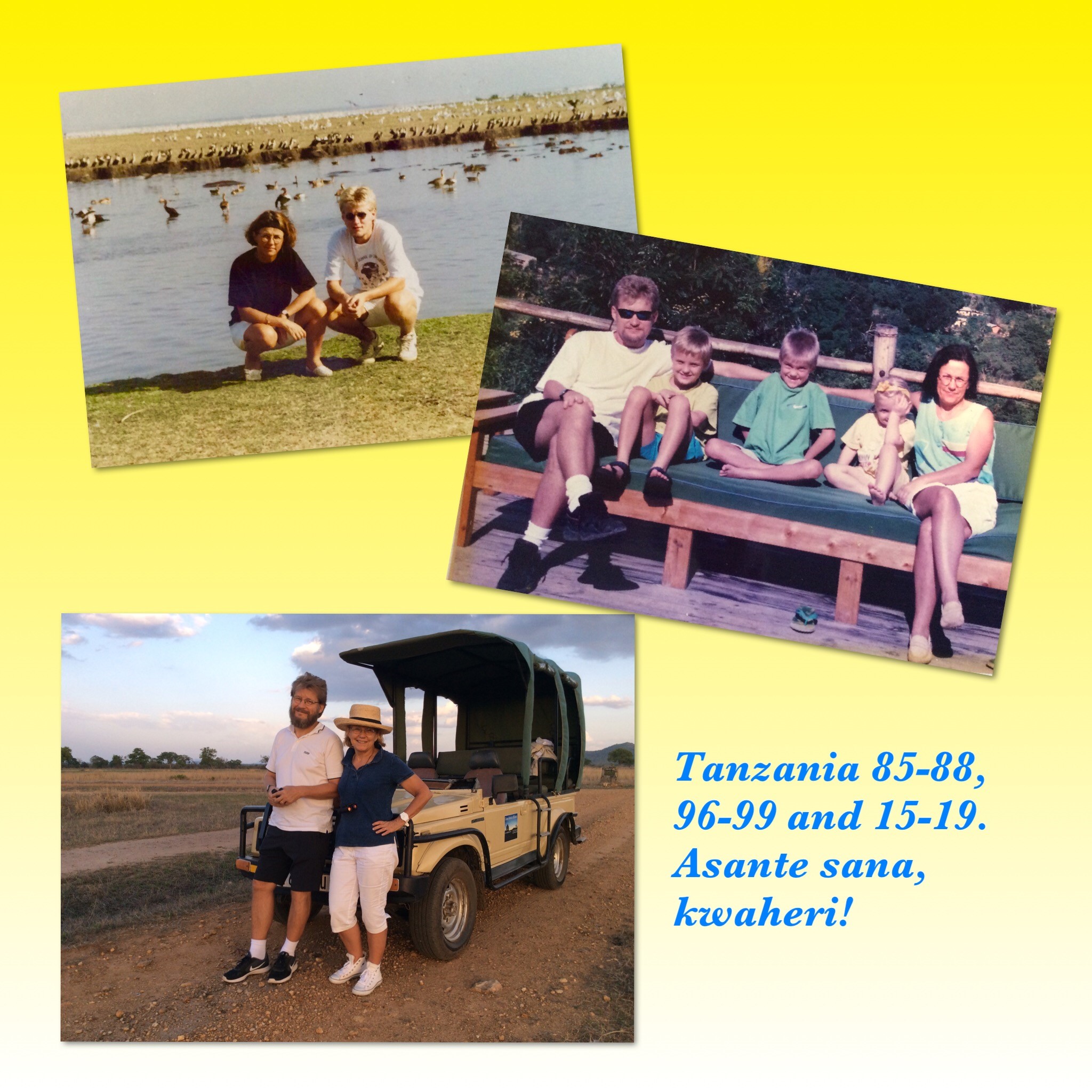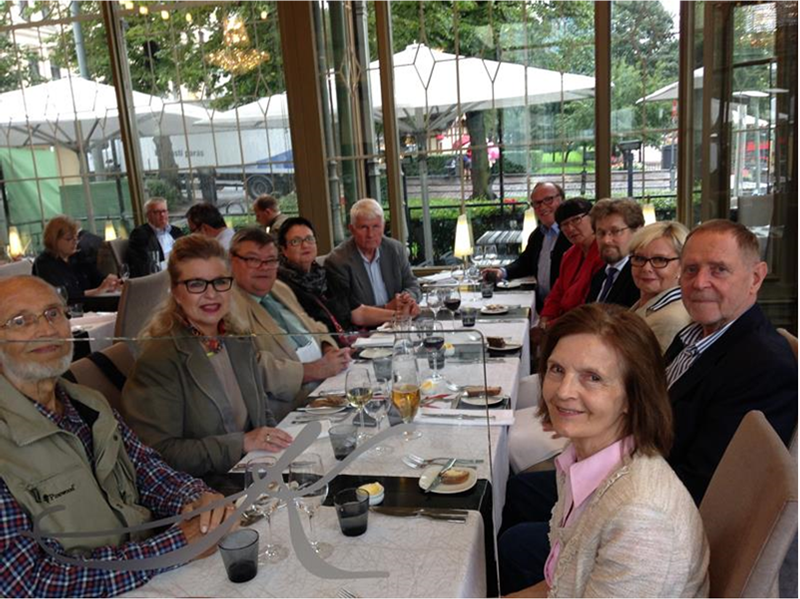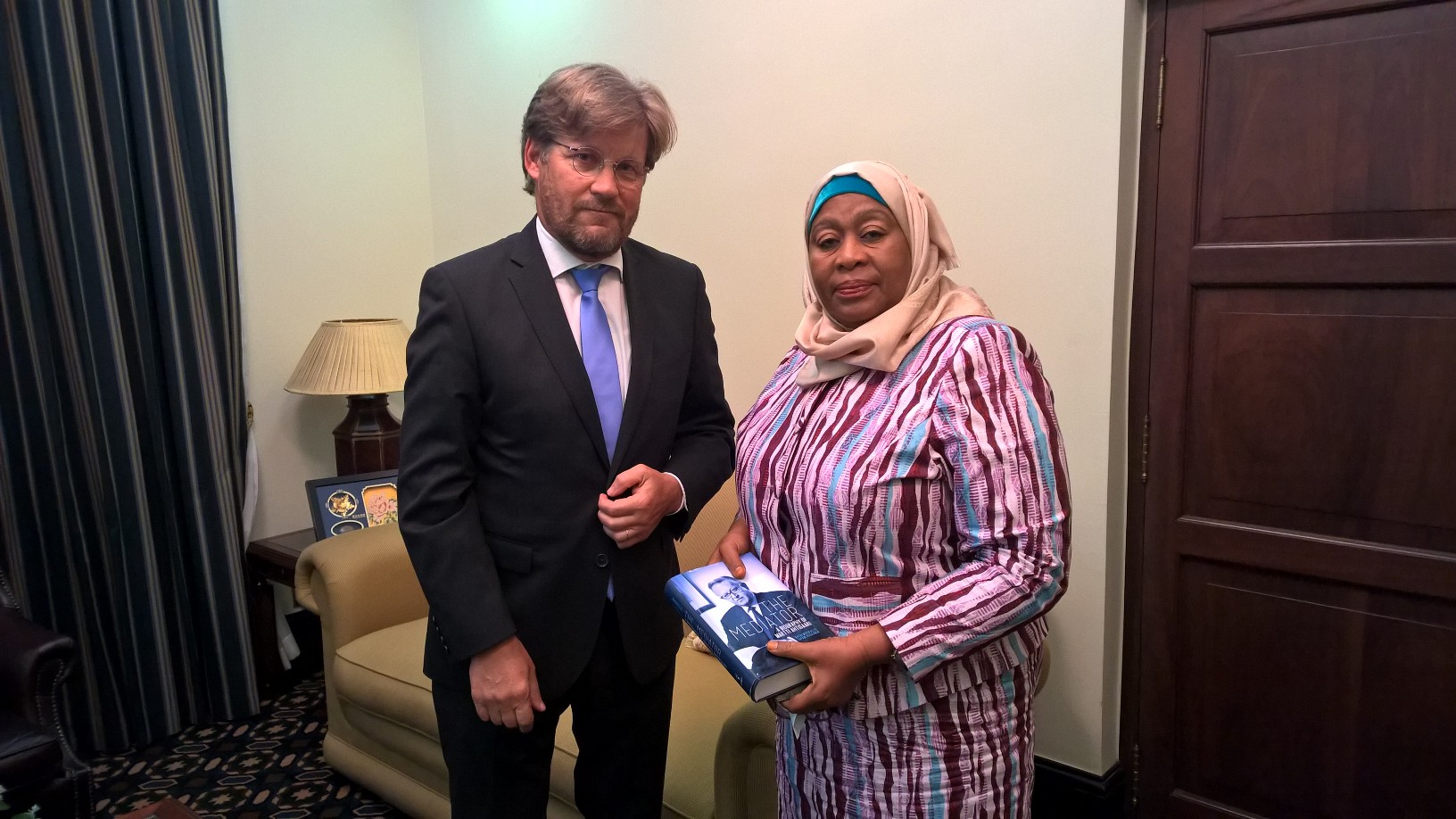Embassy 50 years: Greetings from Pekka and Ulla Hukka
Finland has had an Embassy lead by an Ambassador in Dar es Salaam for 50 years. Looking back, I notice I am reminiscing 35 of those 50 years. Tanzania has been and remains a very special place for me and my family, and Tanzania has had a big influence on my whole career and topics of interest.
I came to the Ministry for Foreign Affairs in 1985, and that very same year I was asked to relocate to Dar es Salaam and take up the job of archive manager there. I was told it was a unique opportunity (although I later hear that many had declined the offer), and it proved to be just that. With my wife Ulla we agreed on the move over lunch break. We were reading through lists of what to pack and looking at pictures of our future home, but we had no idea of what life was going to be like in Dar es Salaam. My colleague and neighbor in the NIC-Building, Jussi Tanskanen, quickly got us acquainted with the Indian restaurants, the tennis and squash courts at Gymkhana club and the colourful food markets. Tanzania had hit economic and political low points just before that, President Nyerere had resigned and President Mwinyi had taken up office. There was nothing to buy in the shops, but we could buy fruit and vegetables from the markets. Extra sweet Coca-Cola and Safari beer of varying quality was available, if you managed to get your hands on the starter kit, an empty crate. Learning life and work in a new environment was a huge experience. We lived the life of a young couple in an international environment, when Ulla got a job at IST. We got to know the many faces of Tanzania. Great things like people and nature made a lasting impression. On the other hand, underdevelopment, mistakes, poverty and the long road to development were crushing. The experience of balancing between inequality and our privileges stayed with us permanently and follows us in Tanzania, Finland and elsewhere.
The second round started in 1996, now as a family with three children. The boys started their school at IST, where Ulla had worked as a teacher before. Life with kids was easy without winter clothes, but on the other hand we had to be careful about malaria. For my wife life was of course not as easy, but fortunately the kids were in a good age and there were enough pupils in the Finnish school. I adjusted to work painlessly as I had been following Tanzania over the years, even though I was not directly involved with it in my work in Helsinki. The office was in the NIC Building in the beginning, but we soon relocated to a new chancellery, shared with Sweden. The high moment was when president Ahtisaari came for a state visit with a business delegation to open up the new chancellery. We also hoped that Princess Victoria from Sweden would have come, but in the end she did not. She missed out on the show the Finnish School put up in honour of madam Eeva Ahtisaari. Pole sana Victoria!

Tanzania was then again in the beginning of something new, with president Mkapa taking up office after the first multiparty elections in 1995. CCM won the election of course, like the ones after that as well. Under the leadership of Mkapa, Tanzania opened up and the whole society seemed to be on the move. State companies were privatized or run down, including many that Finland had supported. Efforts were made to support the private sector. Civil society was also changing with new Tanzanian organisations working to promote democracy and human rights. Mobile phones became more common and Nokia phones a tool to lead people towards development. Development cooperation was at a turning point, when Finland along with others started the transition from project based to programme support, first by sector and later budget support. Efforts were made to tackle the debt problem. After the recession in Finland our appropriations increased and we could plan and participate again. Development could be seen and felt. Looking back we as partners may have been even too eager and high-speed, with not enough focus on target setting, risk management and capacity.
‘Again, did you not think of anything else’ was the reaction of many colleagues when I was appointed Ambassador to Tanzania in 2015. Directly towards elections and a new Tanzania once again. Ambassador Kari Karanko hosted a luncheon for former ambassadors and their spouses, who sent us off to their old residence. The residence is great and brings a sense of Finnish style to every event. We felt privileged, especially when celebrating 100 years of Finnish independence in the big garden with the Finns, guests of honour and Santa Claus. What a great party!

I quickly submitted my letter of credentials to president Kikwete and then proceeded to the Ministry of Finance to tell them about the recession in Finland and the 30 % cuts we would have to make to our development cooperation support. I had not met the PS before but am sure he remembered my face after that. A large corruption case affected the relations between Tanzania and Western donors, and a colleague from the World Bank was hired to improve them. Times had changed, and under the leadership of President Magufuli a new and promising beginning: ‘Hapa kazi tu’, working, stricter use of finances, battling corruption, development of the tax authority etc. On the other hand when rule of law and democracy stagger, it poses a challenge to shared values.
Three times working in Tanzania offer some perspective. When negotiating extra financing with the World Bank, in my mind I used Tanzania as an example of a poor country with its needs and opportunities. When serving as Ambassador I was able to evaluate some projects I had worked with previously. We have had forestry sector projects all the time, first in rain forests of Eastern Usambara. During my second time in Tanzania I was involved in a successful conservation project I was later happy to evaluate as Ambassador.
One starts to wonder if a country could have or should have evolved even more through all the opportunities it has, such as massive natural resources, common language, nascent democracy and a state of peace. The answer is yes! I have been in Tanzania when three presidents were starting their term. Each one of them, including Nyerere and Kikwete, have in the beginning implemented reforms to public administration, education, energy, water, agriculture and industrialization. Long processes have not always succeeded and the people have had to adjust to this. When writing this, a new era is beginning with the first female president, Samia Suluhu Hassan, rising to power after the death of president Magufuli.

The first Finnish ambassador accredited to Tanzania started his duties in Dar es Salaam 1.3.1971. In recognition of the anniversary, we will publish recollections and short memoirs of past Finnish ambassadors to Tanzania.

